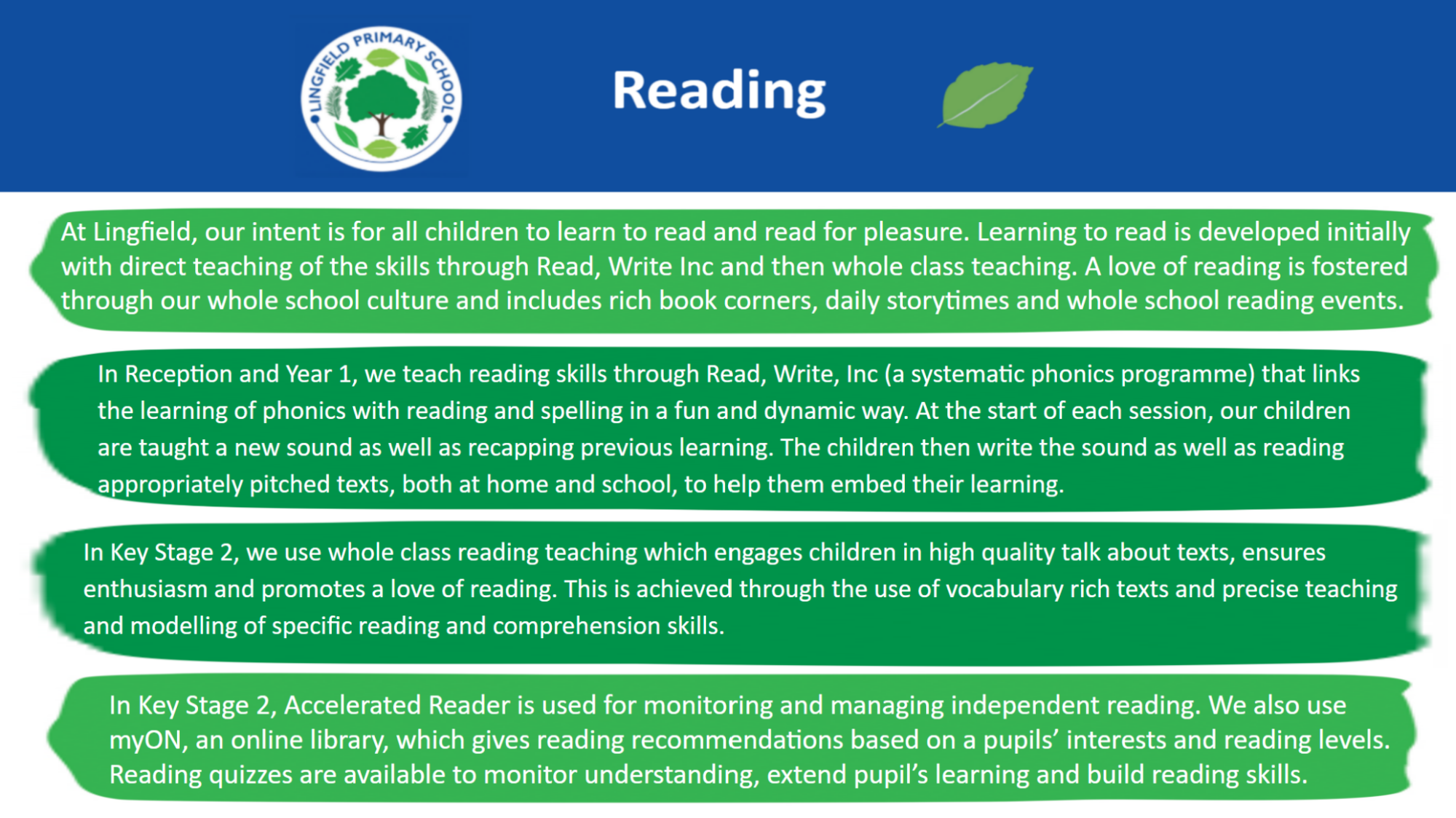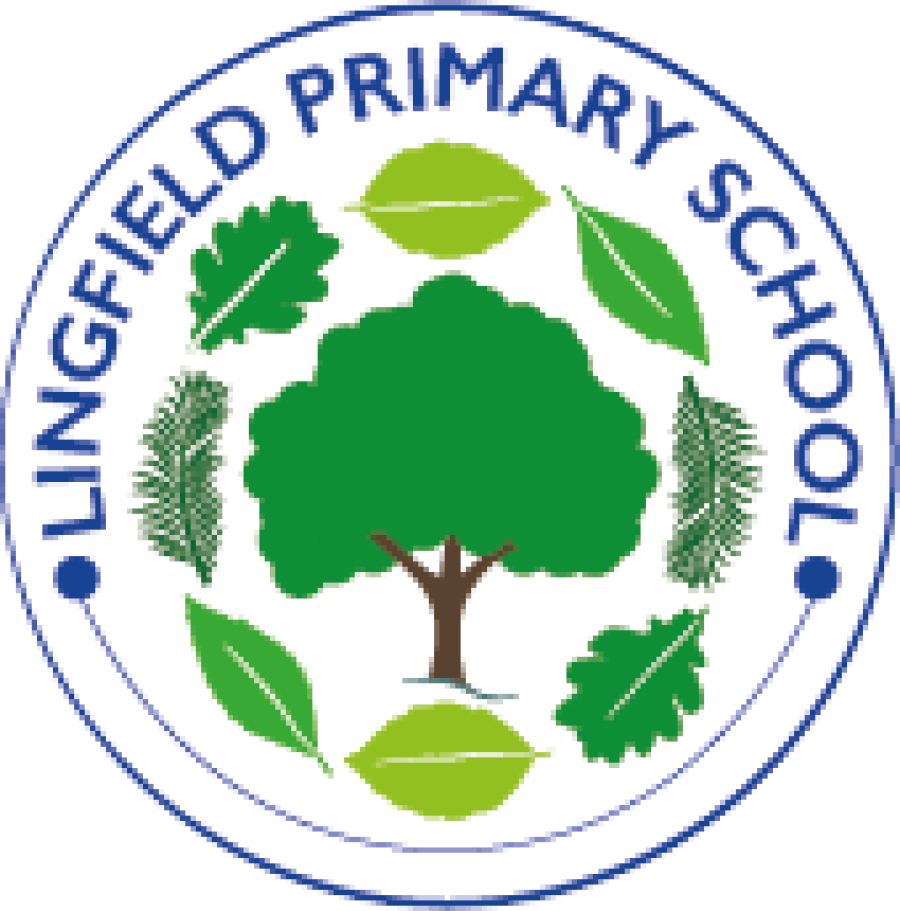Reading
Reading improves all of a child’s literacy skills and can offer them a lifetime of enjoyment and learning. At Lingfield Primary School we aim to promote a love of reading and feel that children discovering books and how to use and enjoy them is crucial to their development. Through individual reading, group reading and whole class work in RWInc, and then Reading Wokshop lessons, they read around a variety of genres and themes. We aim to give children to high quality reading experiences that support and challenge them to delve further into the texts they are encountering and develop confidence in being able to discuss them.
Reading at home
Reading with your child at home is a crucially important way to support their learning. Reading books together, reading to your child, hearing them read, discussing reading technique, stories, poems and non-fiction texts are all key ways to will help your child to develop into an able and accomplished reader and writer. Here are some general tips for reading and a resource bank of ideas for questions that may help you with sharing books and talking with your children about what they are reading at home. Remember that children need to read a variety of texts such as stories, reports, information texts, poems, etc. They also love being read to by adults, particularly if you can do the voices! If you show children you enjoy reading it will have a positive impact.
Our Reading Spines
For each year group, we have produced a collection of books we aim to read over the year linking to our contexts. These are a store of classic and essential reads for each Year group. Click the links below to access these Year Group Spines:
Nursery Reading Spine
Reception Reading Spine
Year 1 Reading Spine
Year 2 Reading Spine
Year 3 Reading Spine
Year 4 Reading Spine
Year 5 Reading Spine
Year 6 Reading Spine
Useful Links
Not sure what to read next? Why not explore these websites for recommended reads of the latest literature.


